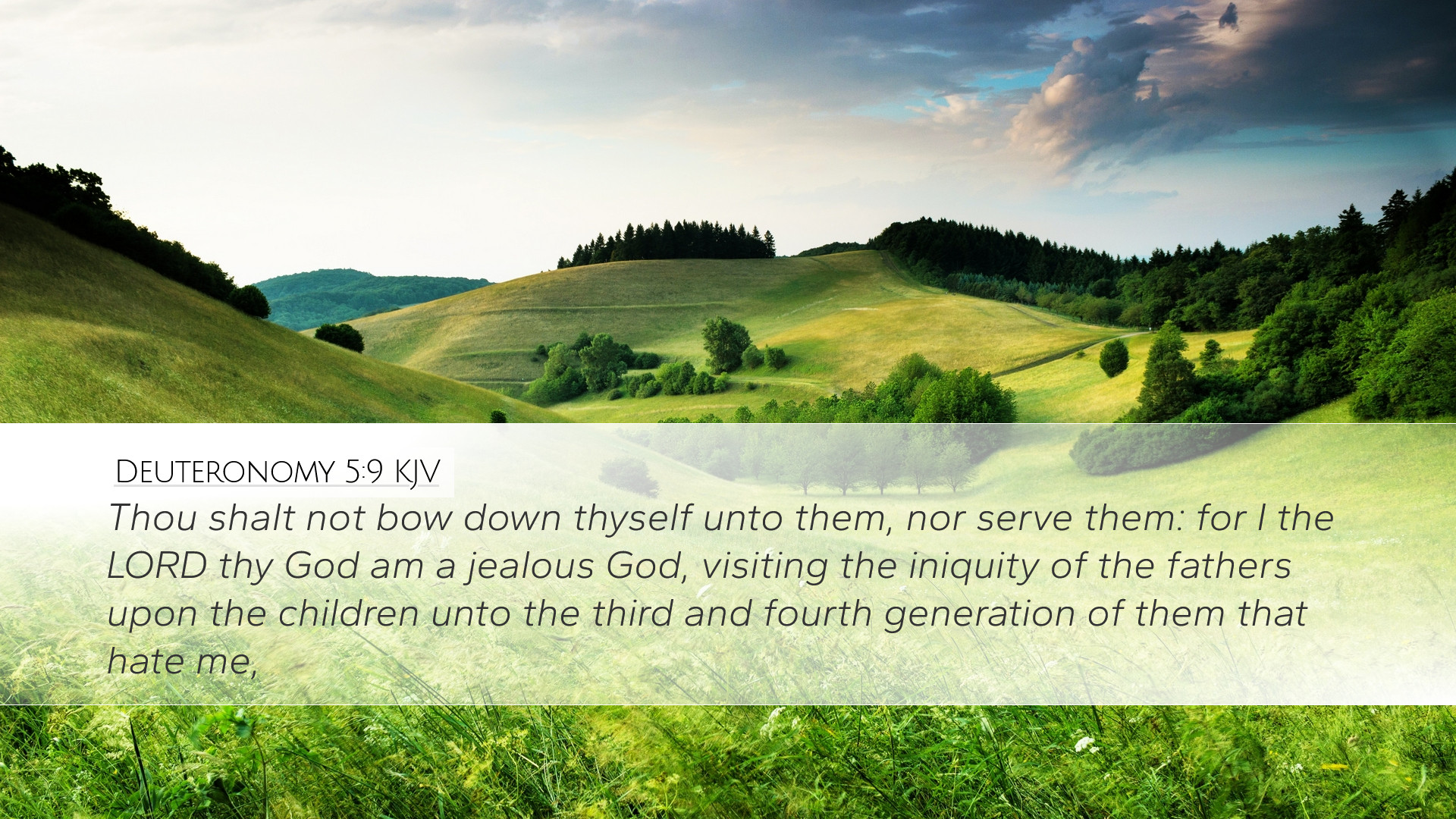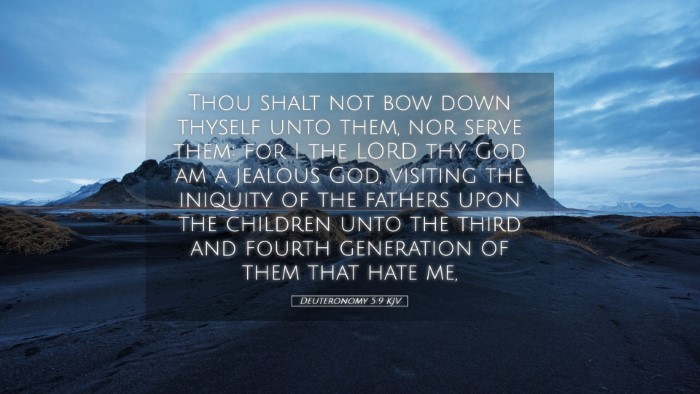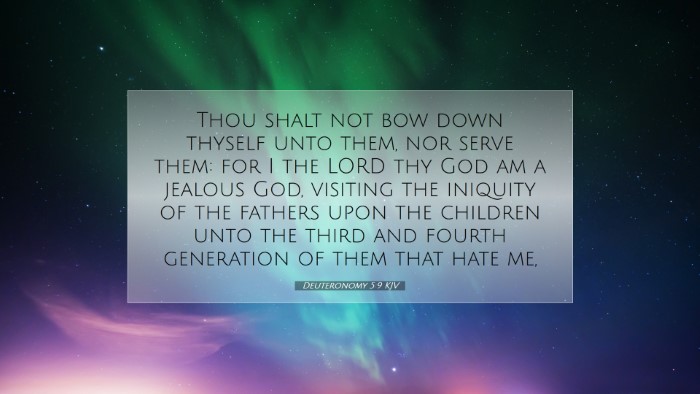Commentary on Deuteronomy 5:9
Bible Verse: Deuteronomy 5:9 - “You shall not bow down to them or serve them; for I, the LORD your God, am a jealous God, visiting the iniquity of the fathers upon the children to the third and fourth generation of those who hate Me, but showing mercy to thousands, to those who love Me and keep My commandments.”
Introduction
This verse is situated within the broader context of the Ten Commandments, specifically focusing on the prohibitions against idolatry and the seriousness of God's covenant with His people. The insights provided by esteemed commentators like Matthew Henry, Albert Barnes, and Adam Clarke yield rich theological implications that are significant for pastors, students, theologians, and Bible scholars.
Exegesis of Deuteronomy 5:9
Observations on Idolatry
Idolatry: This verse emphasizes the prohibition against serving idols. Matthew Henry notes that God is a spirit and cannot be adequately represented by physical objects. Idolatry distorts the understanding of God's nature and His relationship with humanity.
- Significance of Worship: The act of bowing down signifies acceptance and submission, which must only belong to God.
- Contrast with Jealousy: God's jealousy denotes His deep desire for the exclusivity of worship and the covenantal faithfulness of His people.
The Character of God
Jealous God: God’s jealousy is not vindictive but protective. It underscores God’s commitment to His people and His desire for a loving relationship, as highlighted by Albert Barnes. God’s jealousy here reveals His unwillingness to tolerate disloyalty.
- Consequences of Idolatry: Adam Clarke points out that the consequences of idolatry are severe, not just for the individual but extending to the children, showcasing the far-reaching implications of sin.
- Generational Impact: The phrase "to the third and fourth generation" indicates a collective responsibility and the lasting influence of parental choices on subsequent generations.
Mercy and Judgment
Visiting Iniquity: The expression "visiting the iniquity of the fathers" must be understood in its covenantal context. God’s justice is perfect and holds individuals accountable for their sin, yet His mercy is immensely greater. Matthew Henry assures us that mercy triumphs over judgment, as noted in the latter part of the verse.
- Showing Mercy: The promise of mercy to “thousands” emphasizes God’s grace and willingness to forgive those who love Him and keep His commandments.
- Conditional Promises: The precondition of love and keeping commandments suggests an active and ongoing relationship based on obedience and reverence to God’s law.
Theological Reflections
Covenant Relationship
This passage reflects the dual nature of God’s relationship with His people: one that is gracious yet serious about sin. God’s eagerness to forgive is evident, but equally so is His demand for fidelity. The covenant reveals the full spectrum of God's character, combining justice and mercy. Adam Clarke elaborates that the depth of God’s love requires a serious commitment from humans in return.
Application to Faith Communities
In this contemporary context, pastors and theologians may find that this scripture calls for earnest reflection on modern forms of idolatry—contemporary distractions that lead believers astray from wholeheartedly serving God. The insights from Henry and Barnes compel the church to cultivate a culture of exclusive devotion to God.
- Idol Recognition: Identifying modern idols—such as social media, wealth, or fame—and acknowledging their potential to draw hearts away from God is crucial.
- Encouraging Obedience: Promoting a life of obedience and love toward God inspires generational blessing and the impartation of faith to descendants.
Conclusion
Deuteronomy 5:9 serves as a profound reminder of God's nature as both a jealous deity yearning for the fidelity of His covenant people and a merciful Father ready to forgive those who turn back to Him. The reflections from Matthew Henry, Albert Barnes, and Adam Clarke offer valuable insights that encourage a deeper understanding of our relationship with God while challenging the community of faith to reject all forms of idolatry and embrace lives of obedience rooted in love for God’s commandments.


